Filter by
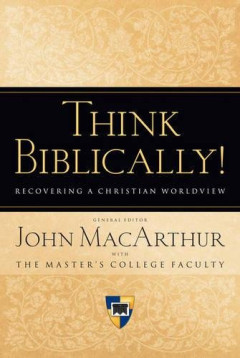
Think Biblically!: Recovering a Christian Worldview
What we think shapes who we are. That's why the Bible tells us, "Do not be conformed to this world, but be transformed by the renewal of your mind" (Romans 12:2a). In a world of differing voices competing for our allegiance, we must learn to "think biblically" so we can distinguish good from evil. God is the Creator of this world; his voice-his Word-must guide our thoughts and our lives. Wit…
- Edition
- 1
- ISBN/ISSN
- 1581344120
- Collation
- Hardcover; 368 hlm.; 15.9 x 24 cm
- Series Title
- -
- Call Number
- 230
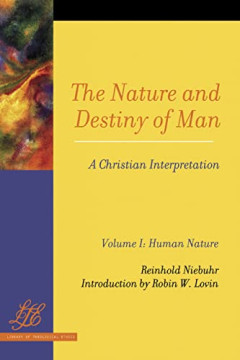
The Nature and Destiny of Man, Vol. 1: Human Nature
The Library of Theological Ethics series focuses on what it means to think theologically and ethically. It presents a selection of important and otherwise unavailable text-English-language texts and translations that have fallen out of print, new translations, and collections of significant statements about problems and themes of special importance - in an easily accessible form. Volumes in thi…
- Edition
- -
- ISBN/ISSN
- 9780664257095
- Collation
- Softcover; 328 hlm.; 15.39 x 23.16 cm
- Series Title
- -
- Call Number
- 233
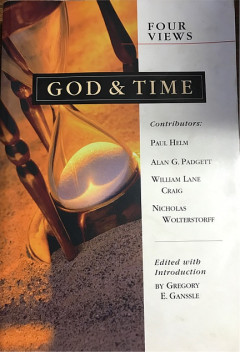
God and Time: Four Views
The eternal God has created the universe. And that universe is time-bound. How can we best understand God’s relationship with our time-bound universe? For example, does God experience each moment of time in succession or are all times present to God? How we think of God and time has implications for our understanding of the nature of time, the creation of the universe, God’s knowledge of…
- Edition
- 1
- ISBN/ISSN
- 9780830815517
- Collation
- Softcover; 256 hlm.; 15.19 x 22.78 cm
- Series Title
- -
- Call Number
- 231.7
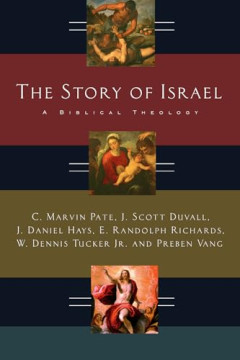
The Story of Israel: A Biblical Theology
Among the several prominent themes in the Bible, the story of Israel is one that has attracted recent attention and study. The biblical story of Israel--in its election, sin, exile and restoration--is a finely articulated drama of the glory and the plight of the universal story of humanity and creation. And the story of Jesus, born from the womb of Israel as its Messiah and true seed of Abraham…
- Edition
- -
- ISBN/ISSN
- 9781844740550
- Collation
- Softcover, 320 hlm, 15 x 23 cm
- Series Title
- -
- Call Number
- 230.041
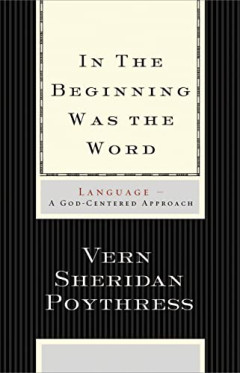
In the Beginning Was the Word: Language-A God-Centered Approach
Language is not only the centerpiece of our everyday lives, but it gives significance to all that we do. It also reflects and reveals our all-sustaining Creator, whose providential governance extends to the intricacies of language. Writes Vern Poythress, "God controls and specifies the meaning of each word-not only in English but in Mandarin Chinese, Hindi, Italian, and every other language. Wh…
- Edition
- -
- ISBN/ISSN
- 9781433501791
- Collation
- Softcover; 415 hlm.; 15.2 x 22.8 cm
- Series Title
- -
- Call Number
- 230.014
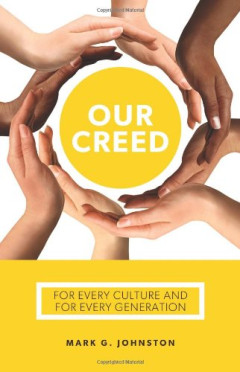
Our Creed: For Every Culture and Every Generation
The Apostles' Creed has united the church throughout her history. The engaging and pastoral style of?Our Creed?presents the creed in a fresh and appealing manner that speaks to our postmodern culture. By unfolding the creed's great scriptural truths and using helpful applications, compelling illustrations, and penetrating study questions, this book is the perfect tool for membership classes, sm…
- Edition
- -
- ISBN/ISSN
- 9781596384484
- Collation
- Softcover; 124 hlm.; 14 x 21.5 cm
- Series Title
- -
- Call Number
- 238.11
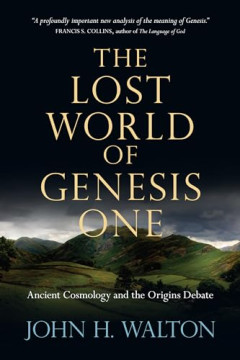
The Lost World of Genesis One: Ancient Cosmology and the Origins Debate
In this astute mix of cultural critique and biblical studies, John H. Walton presents and defends twenty propositions supporting a literary and theological understanding of Genesis 1 within the context of the ancient Near Eastern world and unpacks its implications for our modern scientific understanding of origins. Ideal for students, professors, pastors and lay readers with an interest in the …
- Edition
- -
- ISBN/ISSN
- 9780830837045
- Collation
- Softcover; 175 hlm.; 14 x 21 cm
- Series Title
- -
- Call Number
- 231.765
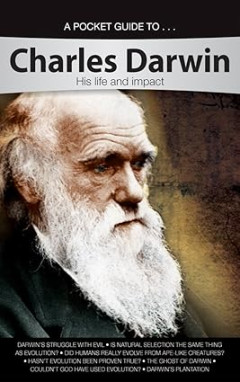
A Pocket Guide To Charles Darwin: His life and Impact
How did Charles Darwin come to believe in evolution? Did his daughter's death turn him from Christianity? What is natural selection? Did humans really evolve from ape-like creatures? Has evolution been proven true? Couldn't God have used evolution? These and other questions are answered in this Pocket Guide to Charles Darwin. Looking at the course of his life, Darwin was influenced by many p…
- Edition
- -
- ISBN/ISSN
- 9781600922565
- Collation
- Softcover; 96 hlm.; 11.4 x 18 cm
- Series Title
- -
- Call Number
- 213

A Pocket Guide To A Young Earth: Evidence That Supports the Biblical Perspective
Is the earth billions of years old or just thousands? Are radiometric methods of dating rocks and fossils reliable? What evidences support a young age for the earth? Where did the idea of "millions of years" come from? How old is the earth? Most secular scientists believe the earth to be billions of years old. They most often use radiometric dating methods to support this assertion. But, do the…
- Edition
- -
- ISBN/ISSN
- 9781600923036 / 1600923038
- Collation
- Softcover; 96 hlm.; 11.3 x 27.9 cm
- Series Title
- A Pocket Guide To...
- Call Number
- 213
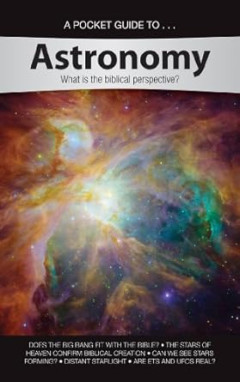
A Pocket Guide To Astronomy: What Is the Biblical Perspective?
Did the universe start with a big bang? Does distant starlight prove the universe is old? What are black holes and how do they form? Can we see stars forming? Are ETs and UFOs real? Secular astronomers teach that the universe began to form more than 12 billion years ago by chance, through what has become known as the "big bang." However, there is strong evidence that points to a young age for t…
- Edition
- -
- ISBN/ISSN
- 9781600923029 / 160092302X
- Collation
- Softcover; 96 hlm.; 11.3 x 18 cm
- Series Title
- A Pocket Guide To...
- Call Number
- 213
 Computer Science, Information & General Works
Computer Science, Information & General Works  Philosophy & Psychology
Philosophy & Psychology  Religion
Religion  Social Sciences
Social Sciences  Language
Language  Pure Science
Pure Science  Applied Sciences
Applied Sciences  Art & Recreation
Art & Recreation  Literature
Literature  History & Geography
History & Geography